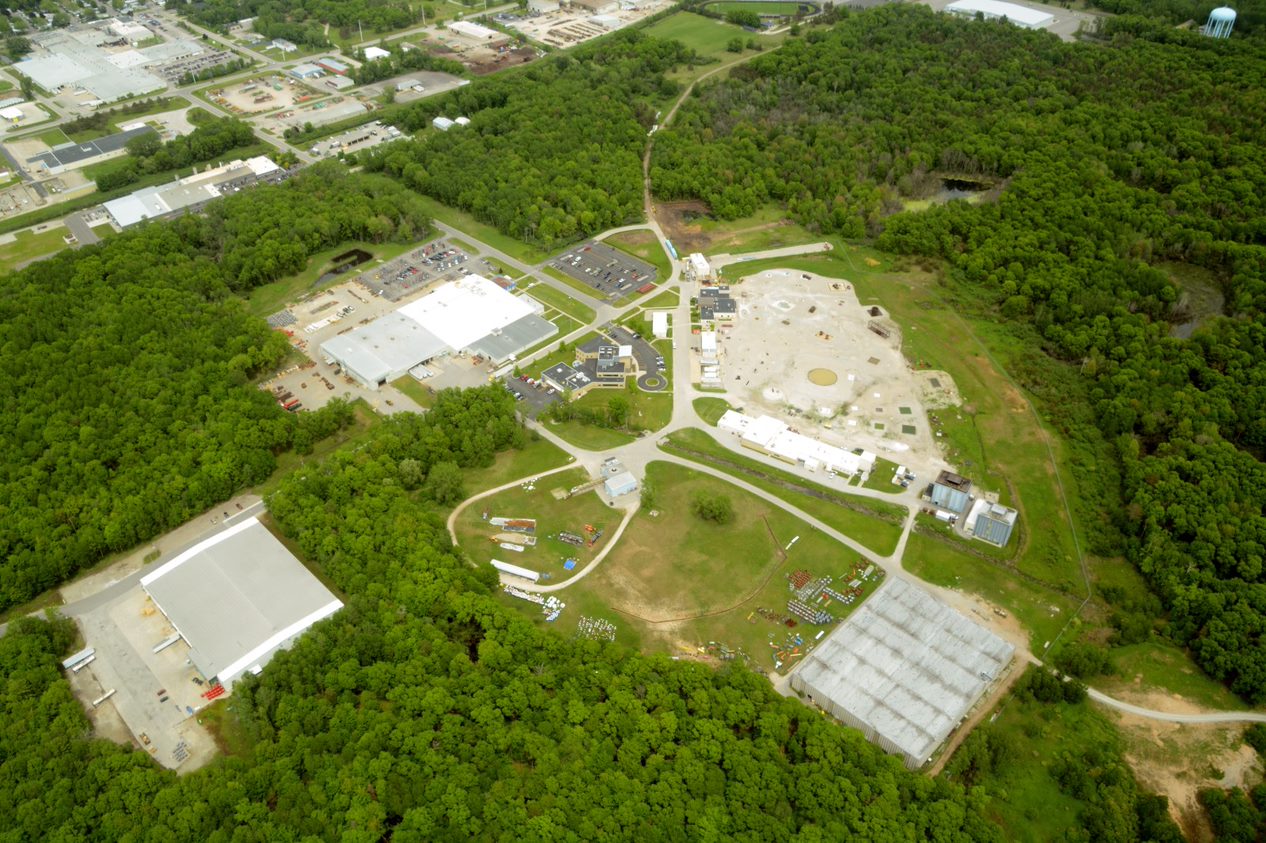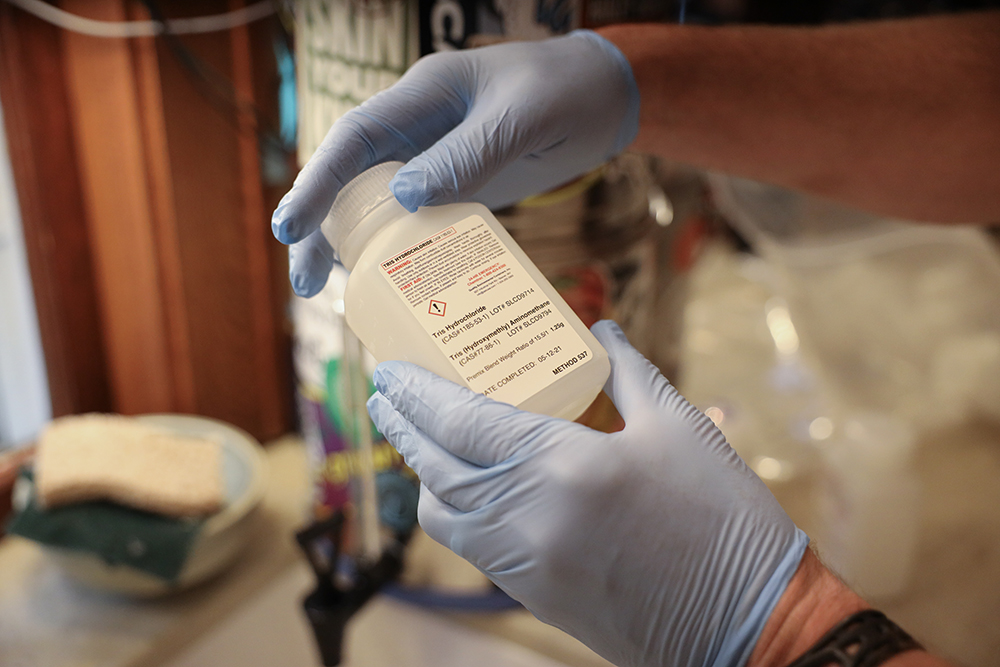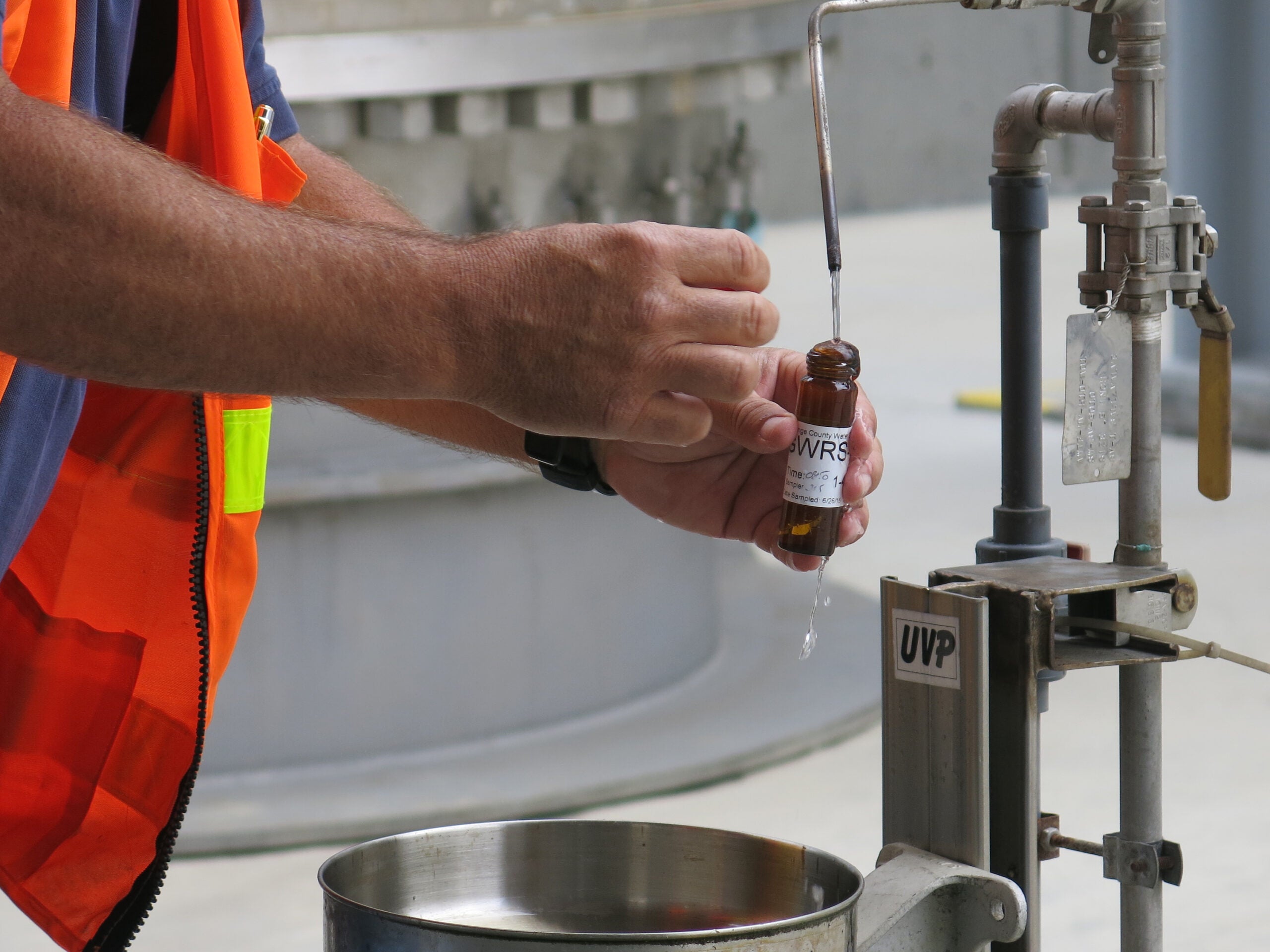A Marinette manufacturer of firefighting foam says it won’t test 500 private wells for PFAS contamination beyond its fire training facility after state regulators said the company failed to complete work as part of an ongoing investigation.
Perfluoroalkyl and polyfluoroalkyl substances, commonly referred to as PFAS, are found in everyday products. There are concerns about the chemicals because they don’t break down easily in the environment, and they’ve been linked to harmful health issues, including cancer.
In February, the Wisconsin Department of Natural Resources directed Tyco Fire Products and Johnson Controls International to sample drinking water wells in a larger area around its Fire Technology Center for PFAS contamination earlier this year. Tyco, located in Marinette, is a subsidiary of Johnson Controls. In a May 27 letter, the DNR issued Tyco and Johnson Controls a notice of noncompliance for failure to conduct that work and other requirements laid out in a Feb. 19 letter.
Stay informed on the latest news
Sign up for WPR’s email newsletter.
“These actions are critical in addressing and alleviating potential human health concerns,” wrote Darsi Foss, administrator of the DNR’s Environmental Management Division.
A notice of noncompliance is the first step in a series of DNR enforcement measures.
Foss acknowledged Wisconsin’s stay-at-home order may have made field work “challenging,” but she said it shouldn’t have affected submission of work plans. If Tyco and Johnson Controls fail to comply, the DNR will seek additional enforcement, and the agency may also take over sampling and seek reimbursement for the work.
But, Tyco argues the company is not responsible for PFAS contamination of groundwater in the area because the chemicals could not have spread there from its fire training facility, said John Perkins, Johnson Controls vice president of environment, health and safety.
“We’ve indicated to them that this is completely isolated from the groundwater coming from our facility, and so that was our position. It’s always been our position,” Perkins said. “DNR is fully aware that there are PFAS from other sources within the community as well, and we’ve asked them on repeated occasions to identify other sources within the community.”
The DNR declined to comment on the matter Wednesday.
Foss has said contamination may not stem from a single source, but the agency tends to work with the company that has the highest concentration of contamination. State law dictates the DNR “shall make a reasonable effort” to identify as many people possible that may be responsible. The DNR has also identified ChemDesign Products as a responsible party for PFAS pollution in the area.
[[{“fid”:”1162901″,”view_mode”:”full_width”,”fields”:{“alt”:”expanded study area of FTC DNR”,”title”:”expanded study area of FTC DNR”,”class”:”media-element file-full-width media-wysiwyg-align-right”,”data-delta”:”1″,”format”:”full_width”,”alignment”:”right”,”field_image_caption[und][0][value]”:”%3Cp%3EThis%20map%20shows%20the%20larger%20area%20of%20where%20the%20Wisconsin%20Department%20of%20Natural%20Resources%20regulators%20have%20asked%20Tyco%20to%20conduct%20private%20well%20sampling.%20%3Cem%3EMap%20courtesy%20of%20the%20Wisconsin%20Department%20of%20Natural%20Resources%3C%2Fem%3E%3C%2Fp%3E%0A”,”field_image_caption[und][0][format]”:”full_html”,”field_file_image_alt_text[und][0][value]”:”This map shows the larger area of where the DNR wants Tyco to conduct private well sampling. “,”field_file_image_title_text[und][0][value]”:”This map shows the larger area of where the DNR wants Tyco to conduct private well sampling. “},”type”:”media”,”field_deltas”:{“1”:{“alt”:”expanded study area of FTC DNR”,”title”:”expanded study area of FTC DNR”,”class”:”media-element file-full-width media-wysiwyg-align-right”,”data-delta”:”1″,”format”:”full_width”,”alignment”:”right”,”field_image_caption[und][0][value]”:”%3Cp%3EThis%20map%20shows%20the%20larger%20area%20of%20where%20the%20Wisconsin%20Department%20of%20Natural%20Resources%20regulators%20have%20asked%20Tyco%20to%20conduct%20private%20well%20sampling.%20%3Cem%3EMap%20courtesy%20of%20the%20Wisconsin%20Department%20of%20Natural%20Resources%3C%2Fem%3E%3C%2Fp%3E%0A”,”field_image_caption[und][0][format]”:”full_html”,”field_file_image_alt_text[und][0][value]”:”This map shows the larger area of where the DNR wants Tyco to conduct private well sampling. “,”field_file_image_title_text[und][0][value]”:”This map shows the larger area of where the DNR wants Tyco to conduct private well sampling. “}},”link_text”:false,”attributes”:{“alt”:”This map shows the larger area of where the DNR wants Tyco to conduct private well sampling. “,”title”:”This map shows the larger area of where the DNR wants Tyco to conduct private well sampling. “,”class”:”media-element file-full-width media-wysiwyg-align-right”,”data-delta”:”1″}}]]
In a letter Monday, Tyco said it submitted a report that found no evidence to suggest PFAS moved through groundwater to the south and west of its facility. Tyco said a mix of PFAS samples taken in the area were different from those found by its facility and likely came from nearby sources. The company said it would be willing to install additional monitoring wells near its facility and investigate other sources of PFAS contamination in the area.
“Tyco will not, however, engage in the requested potable well testing for an area covering more than 500 homes, none of which fall in an area connected to Tyco by the science or data,” wrote Perkins in the letter.
The DNR disagrees with the report’s findings. In another May 27 letter, the agency said the information within the company’s report was incomplete and contained significant gaps in data. The DNR said additional work is necessary to document the extent of contamination at the site.
Contamination In Waterways
The DNR also sent Tyco a notice of noncompliance in April for exceeding levels of polycyclic aromatic hydrocarbons, or PAHs, and improperly making changes to treatment operations for filtering PFAS in surface water from a nearby ditch. Tyco has called on the DNR to withdraw that notice, saying readings stemmed from inaccurate data and were corrected. The company said it also informed the DNR of treatment upgrades.
The agency has directed company officials to immediately address foam that’s been reported on waterways in Marinette and the Town of Peshtigo. The agency contacted Tyco and Johnson Controls about foam sightings April 23. The DNR is asking company officials to conduct PFAS sampling, daily inspections of ditches and waterways, and develop a response plan that includes removing foam and installing booms to prevent any material from moving downstream.
Tyco said daily foam monitoring has been ongoing since late April at three sites and booms have been placed to block further movement. The company has removed seven gallons of foam and said it’s likely from natural sources, according to Tyco’s website.
Perkins said they’ve “gone above and beyond” to address PFAS contamination stemming from its Fire Technology Center. Tyco has conducted PFAS sampling on more than 250 drinking water wells, of which around three dozen have exceeded the state’s recommended groundwater enforcement standard to protect public health. The company recently resumed sampling for about 70 wells yet to be tested near farm fields, although Tyco denies any responsibility for contamination there.
Johnson Controls has also provided bottled water to around 130 residents since late 2017 and installed 40 water treatment systems in homes with elevated PFAS levels. Tyco has spent more than $3 million to help the city of Marinette dispose of contaminated sewage sludge. The company has also spent $1 million in improvements to its sewer lines running to the city’s wastewater treatment plant.
Last year, Johnson Controls said it set aside $140 million for cleanup of pollution from firefighting foam at its properties.
The DNR referred Johnson Controls and Tyco to the Wisconsin Department of Justice in May last year for failing to report any release of PFAS when it was first discovered in 2013. Company officials have said they believed contamination had been confined to the site of its facility.
Wisconsin Public Radio, © Copyright 2024, Board of Regents of the University of Wisconsin System and Wisconsin Educational Communications Board.






